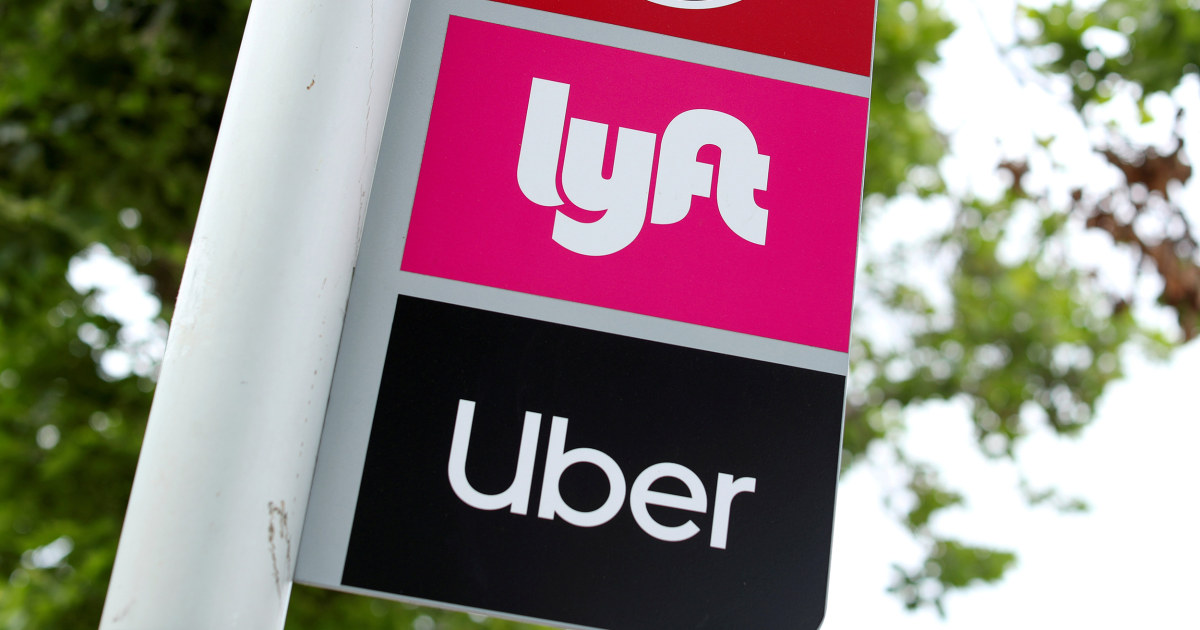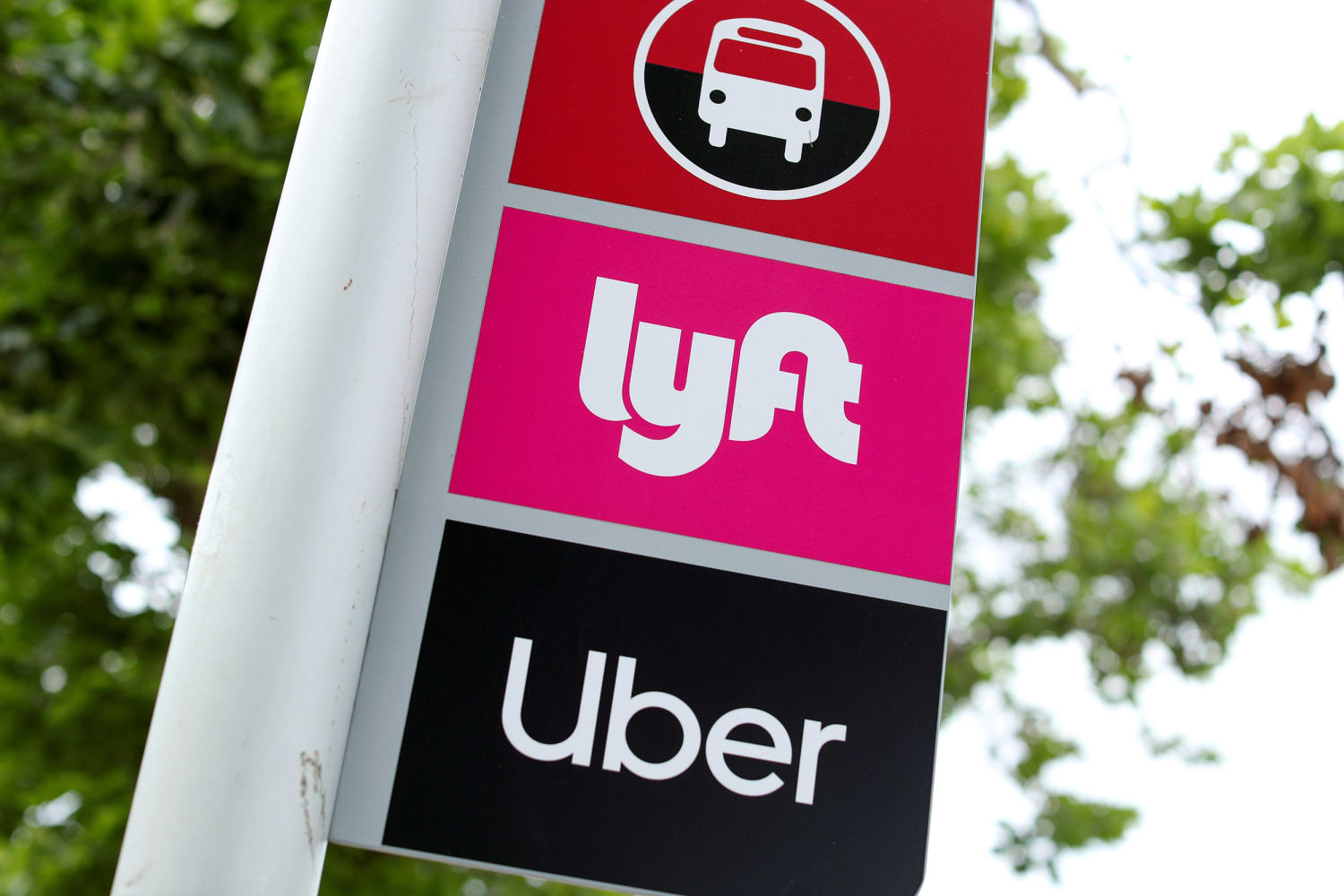
Operation Warp Speed has hit another speed bump: Now that the vaccines are rolling out, how are we supposed to get everyone to their vaccination appointments, twice?
For people with cars and child care options, the answer may be more simple. For others, it’s a scramble.
The ride-share companies Lyft and Uber, fielding requests from states and municipalities, are highlighting this gap in lobbying efforts aimed at President-elect Joe Biden’s incoming administration and offering “free rides.” But someone has to pay for them.
“We cannot leave any part of society behind,” Richard Zane, M.D., professor of emergency medicine at the University of Colorado School of Medicine, told NBC News in a phone call.
Zane is helping stand up vaccination rollouts across the state, from clinics and drive-throughs to mass vaccination centers and “pop-up” clinics. His own facility is in talks with Lyft about the possibility of providing rides to some patients.
“There’s a huge swath of the population that struggles with transportation,” including seniors and people with low income, he said. “We need to do whatever is needed in the best interest of the country so we can get mass vaccination.”
Zane said the center is currently evaluating the funding component, looking to cover the cost with a mix of its own money, state assistance, philanthropy, insurance coverage and for transportation partners to provide discounted services.
Lyft has set a goal of executing 60 million rides, enough to cover each of the 15 million it estimates face barriers to reliable transportation to and from each of their vaccination appointments.
Unreliable and unequal access to transportation was an issue before the coronavirus pandemic, but loss of income and cuts to public transport during the pandemic have only multiplied the issue.
“There’s a major, major problem,” with access to reliable transport, John Zimmer, Lyft’s co-founder and president, told NBC News by phone. “The economy can’t start moving and individuals can’t start getting vaccinated until someone starts to step up.”
The company already has existing programs to transport patients for nonemergency medical transport covered by their insurance or other plans, Lyft highlighted in presentation materials it said it gave to the Biden transition team in late December and reviewed by NBC News.
“As soon as we saw this would be one of the biggest health logistical challenges our country will face, we knew we already had a network of drivers, products and services that could be put to use to chip away at one part of the problem,” Megan Callahan, VP of health care at Lyft, told NBC News by phone.
The company pitched that the Biden-Harris administration should allocate federal funding for the program and establish federal recommendations for providers.
Callahan said the Biden transition team was “definitely intrigued” and asked detailed questions during the presentation.
The Biden transition team did not respond to an NBC News request for comment.
For its part, Uber is committing 10 million free rides to the rollout effort and exploring additional partnerships with government officials, health care providers, philanthropic foundations and businesses, said Julia Paige, head of social impact at Uber.
“Transportation should never be a barrier to getting the Covid-19 vaccine,” said Page. “To end the pandemic, it will take a coordinated global effort and all of us can play a role.”
On Tuesday the company announced a partnership with the vaccine maker Moderna to give users vaccine-safety information through its app. It said it hopes to work with public-health officials to help individuals with vaccine allocations arrange rides and receive reminders.
Uber has also already delivered nurses with flu vaccination kits, under its Uber Health initiative. Spokesman Andrew Hasbun said the ride share company was exploring possible partnerships to do the same for the coronavirus vaccination effort.
The fight isn’t just for society, it’s also for their bottom line: With ride share usage dramatically down during the pandemic, the sooner the country reaches herd immunity, the sooner these companies can return to profitability.
Both companies have sent letters to state and federal officials asking for their drivers to be taken into consideration when deciding vaccination allocations.
“Early access to a vaccine would help drivers and delivery people continue to play their essential role while also reducing the risk that they may inadvertently contract, or possibly transmit, the virus,” Danielle Burr, Uber’s head of federal affairs, wrote in a letter to the Centers for Disease Control and Prevention. “Uber strongly supports the recommended prioritization of Essential Critical Infrastructure Workers for vaccine distribution.”
University of Tennessee logistics professor Tom Goldsby sees a potential role for ride-share companies. However, their benefit may be most felt in densely populated urban areas, he said. More suburban and rural areas could see greater impact from other transit options or by leveraging existing retail solutions, like local pharmacies.
“Anything that helps to close the gaps,” Goldsby said in an email. “That enhanced mobility might contribute to somewhat higher vaccination rates sooner.”
Source: | This article originally belongs to Nbcnews.com










